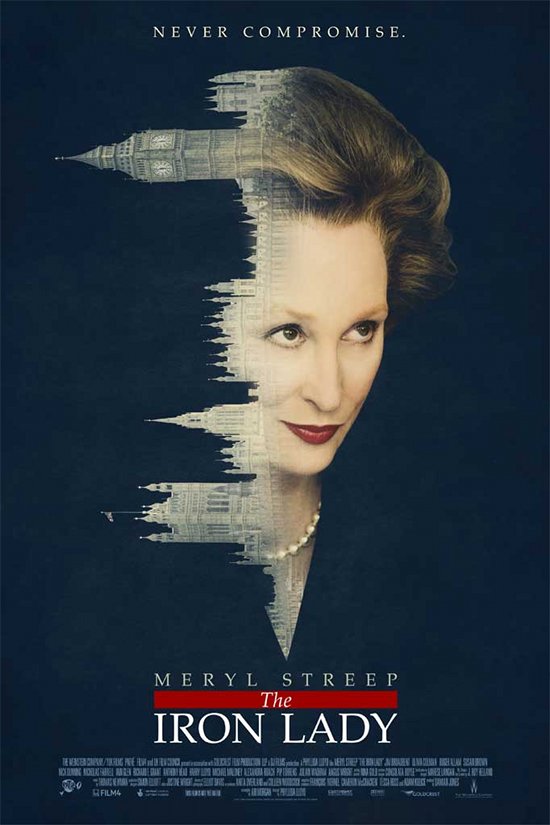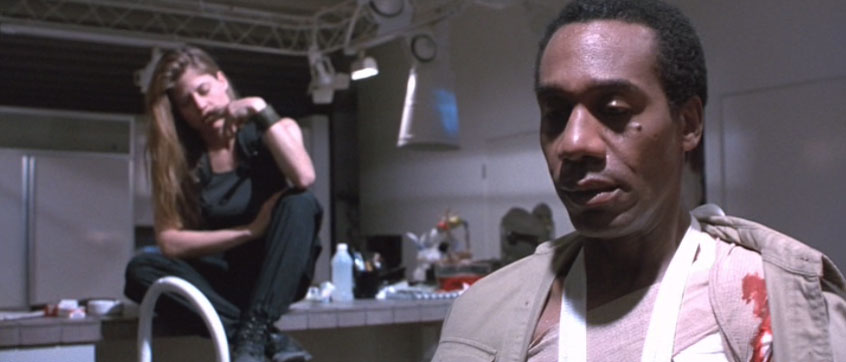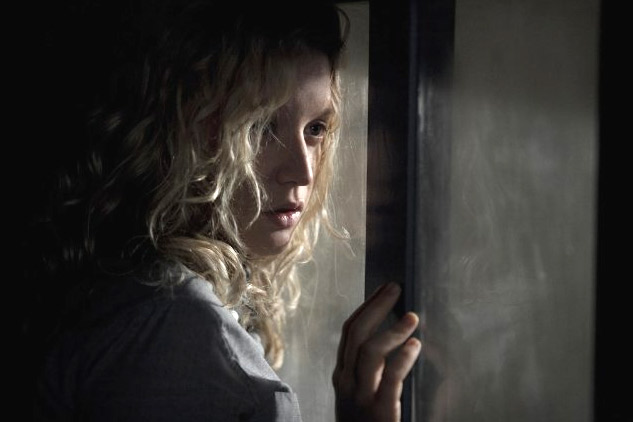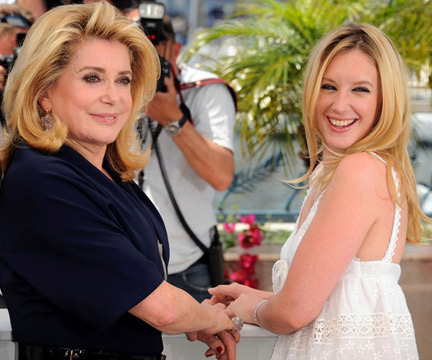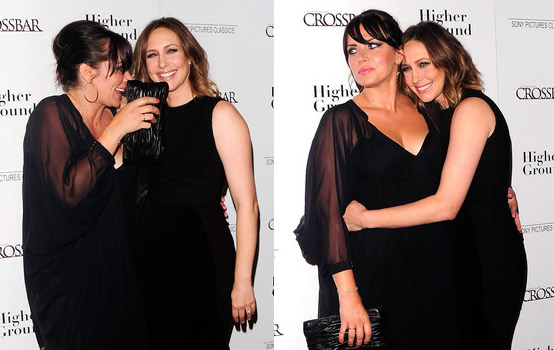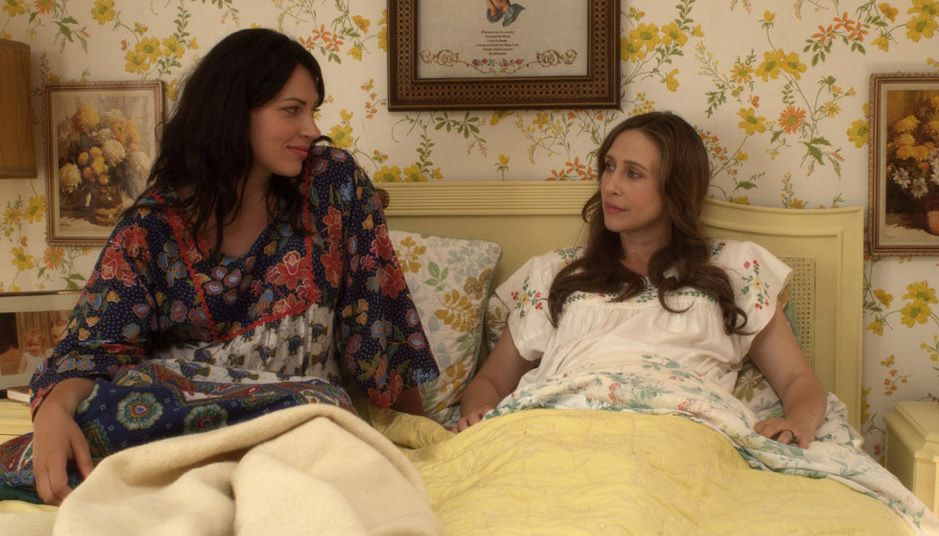Michael C. here. I missed Margo Martindale's work on Justified, but judging by the response to her Emmy win, and by the consistently stellar level of her work, the award was no doubt well-deserved. All the same, it was hard not to mutter a curse under your breath when a name other than Christina Hendricks was called out. For four seasons on Mad Men Hendricks has been the epitome of a what a great supporting performance can accomplish. Her nuanced, deeply felt performance as Joan Holloway prevented the character from being the period caricature it could have been in lesser hands, and raised the bar for the rest of the show.
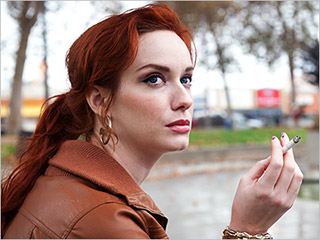 Christina Hendricks as "Blanche" in DRIVE (2011)
Christina Hendricks as "Blanche" in DRIVE (2011)
Now with Drive, in the small but crucial role of Blanche, Hendricks is taking that skill for finding the heart underneath flashy surfaces to the big screen. I got to chat with Hendricks recently at a press event where she arrived bright and enthusiastic fresh from the set of Mad Men. Here are some of the highlights from the event where I was able to get a few questions in:
On her confrontation with Ryan Gosling…
Christina Hendricks: We shot that very intense scene the very first day of shooting. None of really knew each other, and we were in this hundred degree creepy little hotel room. And so Nicolas came up to us and said, “I’m the kind of director - I will shoot and shoot and shoot until you tell me not to shoot. So be vocal with me and let me know if you feel comfortable with what we’ve already got” No director ever does this. It’s really a nice thing to hear.
He was just very collaborative and very understanding; because it was really intense stuff we were shooting. And because I really didn’t know Ryan yet, it was this very real feeling of fear in this very uncomfortable hot room. So it was intense to shoot, but I think it lead to a successful scene. We all got to know each other by the end of the day [laughs] All sweating together.
 Michael: How much of that intensity were you ready for and how much did you experience for the first time on the day?
Michael: How much of that intensity were you ready for and how much did you experience for the first time on the day?
Christina Hendricks: I think the night before we rehearsed it so we could get the blocking down but we didn’t rehearse it emotionally. We knew where we were going to be standing. Cause we knew it was going to be a long day and we knew it was going to be hard with the entire crew in there. So we all got together the night before and said, “We’ll walk here and here and then you’ll go down and the money bag will be here.” So I wasn’t quite ready for this strong leather glove on my face and I remember my heart being like “Ba-boom! Ba-boom!” He [Gosling] is such an extraordinary actor it felt real and very much in the moment. We did that scene over and over and over, so I was an emotional wreck by the end of the day. I was crying for twelve hours straight.
Michael: It comes across. Just watching it is draining.
Christina Hendricks: It was heavy. Nicolas would be like, “Can you do one more?” and I would be like “[gasping sobs] Hold on.” And Ryan was like, “Who are you? How can you keep doing this?”
On choosing Drive...
Christina Hendricks: I choose a project based on who’s involved and my faith in them and the script and the rest you just let go. I’d seen Nicolas’s film Bronson before we met and I was so impressed by it and so excited by it that I was like, “This guy’s going to do something cool." The end result was kind of what I imagined he would do. It was stylish and rich in color and scary and heartfelt and all these different things that I knew that he would do. I had a lot of confidence in him.
(From this point forward we could not avoid getting into SPOILERS -so read on if you've seen the movie)
Click to read more ...
 Friday, September 23, 2011 at 3:33PM
Friday, September 23, 2011 at 3:33PM 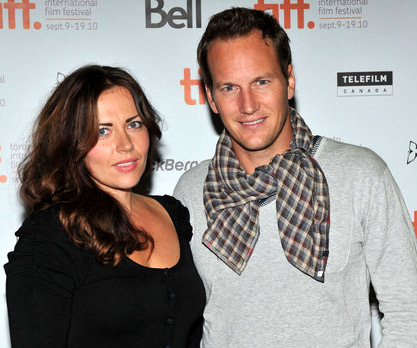
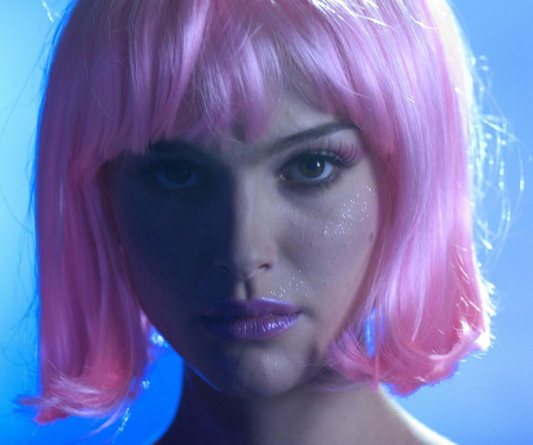 Her name is "Alice"Nathaniel: So did you see the movie later and think I could do that.
Her name is "Alice"Nathaniel: So did you see the movie later and think I could do that.


